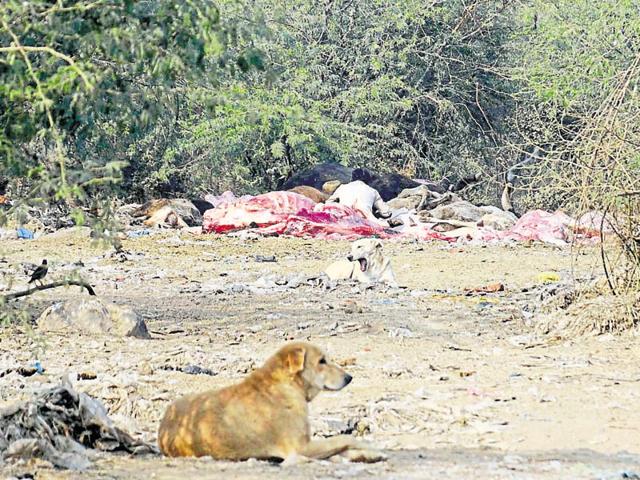Do not dump animal carcasses in open, forest dept tells MCG
The forest department has sent a proposal to the Municipal Corporation of Gurgaon (MCG) to establish an incinerator at Bandhwari or any other suitable site within three months.
The forest department has sent a proposal to the Municipal Corporation of Gurgaon (MCG) to establish an incinerator at Bandhwari or any other suitable site within three months.

On February 18, the MCG was asked to dispose dead animals in a hygienic and scientific way till they build an animal incinerator. “This can very well be done at the proposed extension of the Bandhwari site where a case for diversion of forest land (32 acres) is already under the process,” the proposal reads.
Concerned scientists had recently said that a proper disposal system needs to be in place for animal carcasses found in the forest area. If the carcasses are not disposed properly, they may prove fatal for other animals.
The Aravallis is home to several wild animals, including leopards, hyena, the Indian fox and several species of vultures among others.
During an inspection by the forest department, it was found that a family of Egyptian vultures had been nesting in the Aravallis. “We have seen that endangered species are coming back to the region. Disposing animal carcasses that are infected with disease in the open will have an adverse impact on the establishment of a viable population of the species in the area,” said MD Sinha, conservator, forest, Gurgaon.
Dead bodies of animals are dumped in open areas and vultures feed on them. The birds are susceptible to the diclofenac drug, which is administered to cattle as a painkiller. Though the drug was banned by the government, it is still used.
The proposal said, “The government is considering establishing areas free of diclofenac, a nonstreoidal drug regularly given to cattle. The drug is nephrotoxic, harmful to the health of vultures. Therefore, the successful establishment of a viable wild vulture population in Aravallis requires not only the protection of the habitat but also a pro-active approach by civic authorities to stop the present unscientific disposal of animal carcasses near urban areas.”
The government has been taking steps to preserve endangered vultures and had also started the Jatayu Conservation Programme near Pinjore. However, its failure to dispose animal carcasses properly has raised some questions.
Bishnu Prakash, director of Bombay Natural History Society (BNHS), said, “The only solution is to make sure the diclofenac ban is strictly implemented. We have lost 99% of the vulture species. If we don’t do anything soon, there wouldn’t be any vultures left in the area. We need to conserve their habitat.”
When HT contacted MCG commissioner TL Satyaprakash, he said, “We welcome the forest department for further discussion on the issue. The solution to the problem can be reached only when we work together.”
Stay updated with all the Breaking News and Latest News from Mumbai. Click here for comprehensive coverage of top Cities including Bengaluru, Delhi, Hyderabad, and more across India along with Stay informed on the latest happenings in World News.
Stay updated with all the Breaking News and Latest News from Mumbai. Click here for comprehensive coverage of top Cities including Bengaluru, Delhi, Hyderabad, and more across India along with Stay informed on the latest happenings in World News.





